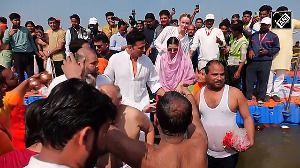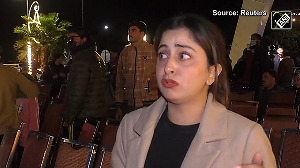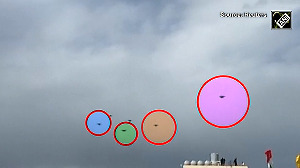Not less than 10,000 people, mostly children, are trafficked into the Northeast with a good number smuggled in from Bangladesh, Nepal and other South East Asian countries, surveys by NGOs have revealed.
Most of those trafficking victims are engaged as cheap labourers in coal mines of Meghalaya, tea gardens in Assam and prostitution in several states.
"The region, besides being a transit point of human trafficking, has also emerged as a destination point. We have rescued a number of children hailing from Nepal and Bangladesh from Assam and Meghalaya who were trafficked to work as cheap labour there," said Hasina Kharbhih, team leader of Impulse NGO.
"Cross border trafficking is very much relevant in N-E, with the region sharing borders with five countries. Some large international trafficking gangs are in operation in the region," she said.
A minor girl from Nepal, who was brought to Assam along with three others, was rescued by Impulse from a house in Assam and sent her home on September 17.
Two other boys, who were trafficked from Bangladesh, were working in the coal mines of Jaintia Hills in Meghalaya were also been rescued and were likely to be sent home soon.
"It is estimated that some 6,000 to 10,000 girls are trafficked annually from Nepal to Indian brothels and a similar number are trafficked from Bangladesh. 27,000 Bangladeshi women and children have been forced into prostitution in Indian brothels," a report by Childline India Foundation said.
While trafficked children are often booked under the Illegal Migration Act, Impulse feels the Juvenile Justice Act or the proposals of the SAARC Convention on Trafficking could be applied to repatriate the victims to their homes, the NGOs say.
Many of these children are trafficked in connivance with their parents.
It is estimated that Nepalese children constitute 20 per cent (40,000) of the estimated 200,000 Nepalese prostitutes in India.
The average age of girls trafficked from Bangladesh and Nepal into India has fallen over the past decade from 16-18 to 10-15 years.
With India sharing a 4,222 kilometre border with 28 districts of Bangladesh, most of it open with rivers criss-crossing it, traffickers take advantage of this to smuggle in their hapless human cargo.






 © 2025
© 2025